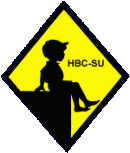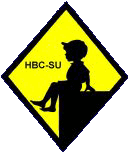
Educators debate the value of residential boarding. There are a range of advantages and disadvantages. Here we have to consier the needs and abilities of both the parents asnd children. There are a range of issues concerning parents. Both day school and boarding schools can do good job with both academics and extracuricular ctivitie. Often a major factor in school selection is the parents. some parents are not prepared for the separation, espoecially with the younger children. Another factor is parenting skills. Simply put, many parents are simply not vert=ry good parents. This may be because they do not have the appropriate skills or personality. In other instances they may not because of busy schedules have the time needed for good parenting. Some families live abroad. This includes businessmen, military, diplomats, missionsries and others. Educators debate the value of residential boarding. There are a range of advantages and disadvantages. And here there is probbly no definitive answer. Children learn differently. Some will do best at home with tgheir parents. Others will do better in a more structured boarding experience. Not only do children vsary, but parents also vary in tgheir sbility to help with their children's education. There are number of benefits to a boarding School. There are no absolute answers as to the value of a boarding school education. Some children thrive and benefit from boarding. Other children do not do well away from home. This depends on the personality of the individual child and how parents have raised them. A boarding school can be just the right choice for some children and disatrous choice for other children. And of course boarding schools vary. Some are a much better fit for an ikndividual child than others. Age is a factor that has to be considered here. It is more diufficult to send oiff younger children to board. We know of no research suggesting that boarding is harmful for your children. Here again children differ. Some children may not do well at a bioarding school, but this probably has more to do with the child's personslity yhsm age. Children may also differ at the age that is best to begin sa boarding education. This is soime thing the parents can best assess.
There are a range of issues concerning parents. Both day school and boarding schools can do good job with both academics and extracuricular ctivitie. Often a major factor in school selection is the parents. some parents are not prepared for the separation, espoecially with the younger children. Another factor is parenting skills. Simply put, many parents are actually very good parents. This may be because they sdo not hve the appropriate skills or personality. In other instances they may not because of busy schedules have the time needed for good parenting. Thus boarding schools may be the best choice for the child providing the structure anhd guidance that parents can not or are unable to provide. Abother major issue with parents. Some families live abroad. This includes businessmen, military, diplomats, missionsries and others. Military families used to be important here, but as Britain has cut back on its overseas military ciommitments, this is now less important. And for various reasons have decided that their children would do best with a British education. Parental attitudes toward boarding have chanhed over time. What was once pursued as a matter if course is now discussed at length by the parents involved who now commonly bring the children into the assessment. While many private schools have traditionally been boarding schools, all this has changed in recent years, especially for the younger children.
Some boarding school children describe boarding schools as a great place to meet new people and to have fun while you're at school. This of course is also the case of day schools. Here the primary difference is the attitude of the children with being away from their parents. Some children are not at all happy about the separation while other children are able to make the adjustment, even at a young age. In fact some children are more flexible at a young age. This all depends on the infividual child and how the parents have prepred them for a bording school experience. Boarding schools allows children to form really close persoinal friendships. The children at boarding chool get to know each other better than anyone will get to know each other outside their families. Not only do the children sprnd a great deal of time together, but they face many of the same problems and concerns together which is especially prone to forming close relationships. They often work together on a variety of teams, especially sports teams. And they enjoy a wide variety of recreational activities together, games and sports. Allof this commonly results in acquiring a range of important social skills.
Educators debate the value of residential boarding. There are a range of advantages and disadvantages. And here there is probbly no definitive answer. Children learn differently. Some will do best at home with tgheir parents. Others will do better in a more structured boarding experience. Not only do children vsary, but parents also vary in tgheir sbility to help with their children's education. There are number of benefits to a boarding School.
1) Daily coexistence leads to friendships, not just among students, but also with faculty members.
2) Often Low student-teacher ratio. The median class size may be 12 students per teacher, with a student-to-teacher ratio of 6 to 1.
3) Boarding school reduces compartmentalization, because academic studies are blended with other activities, such as sports. This natural juxtaposition increases the appeal of both pursuits.
4) Provides stability not available in families where one or both parents travel or are virtually never home due to work schedules.
5) Safety of individuals residing in boarding school is typically higher than non boarding school age students in general.
6) Special help programs are often available.
7) Students enjoy more challenge and face fewer harmful distractions. If the student's public school options are rife with bad influences or lack diversity, boarding school may be the answer.
8) Students learn to govern their own behavior. In many cases students' appreciation for parents greatly increases.
9) Where earlier generations have attended the institution, a family tradition is sustained -- becoming an additional source of motivation
10) Some boarding school offer a post-high school graduation development program, which can provide additional opportunity to mature, perfect academic polish and further develop themselves becoming better prepared to be an adult in today's world.
11) Getting a more full on education and socialising with peers that you usually wouldn't.
There are also disadvantages are unfortunately greater.
1) Some social network sites that you can access through the weekends are blocked during the week.
2) In most boarding schools, you can only go so far away from the premises when you wish to go out with friends.
3) Some schools have summer sessions, possibly also open to students of other schools. These sessions often feature special concentrations such as academic or computer instruction and/or the "fine" arts. Some offer sports and/or rigorous outdoor training during the summer.
4) Many boarding schools are religious so you will sit through an hour church service.
5) Younger pupils will mainly feel patronised by staff and older boarders.
6) Parents no longer have to seem like ogres or nags. Instead at least one member of the boarding staff will.
7) Cases of bullying can be continued in the boarding house.
8) ratio of English people to foreign people isn't favourable.
9) Homesickness and getting in a room with nasty people. Parents have to weign the pros and cons and assess how their parenbting skills and the child's needs can be best met.
There are no absolute answers as to the value of a boarding school education. Some children thrive and benefit from boarding. Other children do not do well away from home. This depends on the personality of the individual child and how parents have raised them. A boarding school can be just the right choice for some children and disatrous choice for other children. And of course boarding schools vary. Some are a much better fit for an ikndividual child than others.
Age is a factor that has to be considered here. It is more diufficult to send oiff younger children to board. We know of no research suggesting that boarding is harmful for your children. Here again children differ. Some children may not do well at a bioarding school, but this probably has more to do with the child's personslity yhsm age. Children may also differ at the age that is best to begin sa boarding education. This is soime thing the parents can best assess.
Related Chronolgy Pages in the Boys' Historical Web Site
[The 1880s]
[The 1930s]
[The 1940s]
[The 1950s]
[The 1960s]
[The 1970s]
[The 1980s]
Related Style Pages in the Boys' Historical Web Site
[Long pants suits]
[Short pants suits]
[Socks]
[Eton suits]
[Jacket and trousers]
[Blazer]
[School sandals]
Navigate the HBC School Country Pages:
[Return to the Main English Boasrding School Page]
[Return to the Main English School Residential Type Page]
[Return to the Main English School Uniform Residential Page]
[Australia]
[England]
[France]
[Germany]
[Italy]
[Japan]
[New Zealand]
[Scotland]
[United States]
Navigate the HBC School Section:
[About Us]
[Activities]
[Chronology]
[Clothing styles]
[Countries]
[Debate]
[Economics]
[Garment]
[Gender]
[Hair]
[History]
[Home trends]
[Literary characters]
[School types]
[Significance]
[Transport and travel
[Uniform regulations]
[Year level]
[Other topics]
[Images]
[Links]
[Registration]
[Tools]
[Return to the Historic Boys' School Home]
